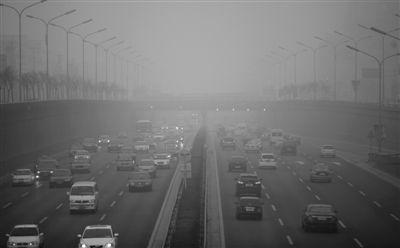Fine-particle pollution climbs in August
 0 Comment(s)
0 Comment(s) Print
Print E-mail China Daily, September 18, 2013
E-mail China Daily, September 18, 2013
Ozone and fine-particle pollution worsened China's air quality in August compared with July, the Environmental Protection Ministry reported on its website on Tuesday.
Twenty-eight of the 74 cities mentioned in the report had good air quality for at least 24 days in August. The number of such cities in July was 36.
 |
|
Ozone and fine-particle pollution worsened China's air quality in August compared with July. |
Nationwide, the proportion of days with good air quality in August was 66.7 percent, 4 percentage points lower than in July.
In the Yangtze River Delta region cluster, 67.2 percent of days in August had good air quality, 6.3 percentage points lower than in July.
The proportion in the Pearl River Delta region cluster was 76 percent, a decline of more than 14 percentage points compared with July.
The cluster of Beijing, Tianjin and Hebei province remained the most polluted region, according to the announcement.
Of the 19 cities with good air quality for fewer than 15 days in August, 12 are located within that cluster. Seven cities in Hebei province ranked in the top 10 most polluted cities in August.
Ozone and PM2.5 — particulate matter smaller than 2.5 microns in diameter that can go deep into the lungs — are the top two pollutants within the cluster, each accounting for the major cause of more than 40 percent of the polluted days.
Ozone pollution was even more severe in the other two clusters in August, occupying more than 97 percent of the polluted days within the two regions.
That situation corresponds with weather in June and July, when there are high temperatures and strong sunshine, the perfect conditions for the formation of ozone.
Ozone is an invisible pollutant that is harmful to the respiratory tract and in high concentrations it could cause irreversible damage to the lungs and central nervous system.
"Though particulate matters in the air may block some sunshine for ozone to form, high concentration of ozone does not guarantee low concentration of PM2.5," said Chai Fahe, vice-president of the Chinese Research Academy of Environmental Sciences.
To deal with pollutants that may lead to PM2.5 and ozone, the central government has issued an action plan with detailed measures for 2013 to 2017.
Targets set for the Beijing, Tianjin and Hebei province cluster include decreasing PM2.5 by about 25 percent; lowering steel production capacity by 120 million metric tons, compared with 2012 levels; and cutting coal consumption by as much as 80 million tons, compared with 2012.





